Pre & Early Education
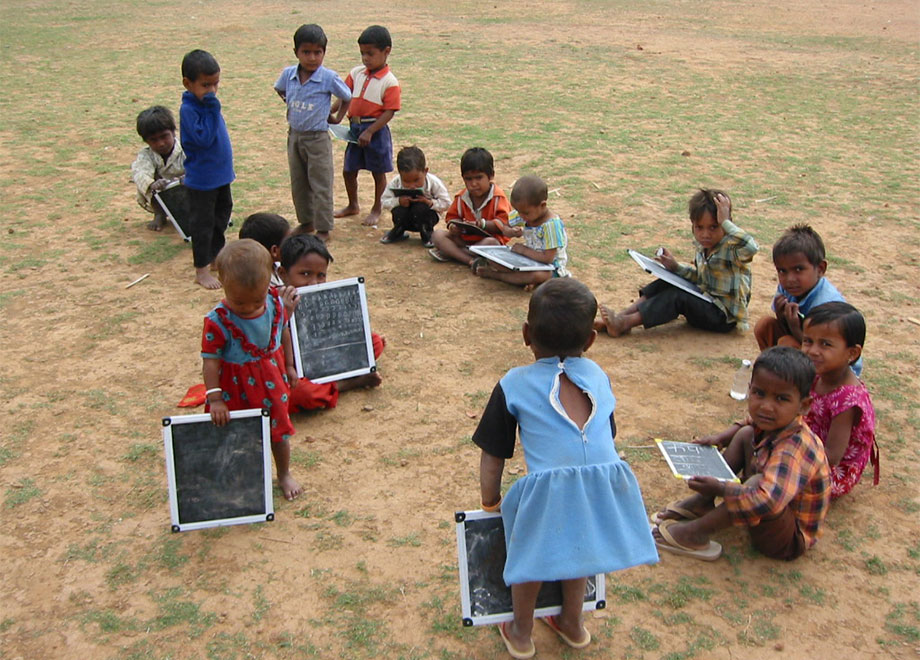
Earliest years of the childhood are the most important years in terms of determining one’s’ development throughout life. In the Indian context, the divide starts with the birth which can never be fully bridged later as all studies indicate. At Bodh, we always felt that a comprehensive programme of child- rearing and pre and early education has to be an integral part of institutions for equity. Our Pre –school program is community-based and child–centered, which means we look at preschools as an extension of a home through which child can comfortably transition to formal school and has a lot of opportunities to learn and explore. Recently, we have added nutritional components in our programme for all children and lactating mothers with components of child–rearing and health, making it a comprehensive programme for mothers and children.
We look at the early grades of schools (1 and 2) as a continuum of pre-school in terms of the developmental stage of children. Here similar approach is adopted in terms of curriculum and teaching-learning methods with an increased emphasis on creating concrete skills that facilitate the child to learn more on his or her own. In early schooling too, there is a strong component of communities’ support to ensure children’s comprehensive development.
Primary & Elementary Education
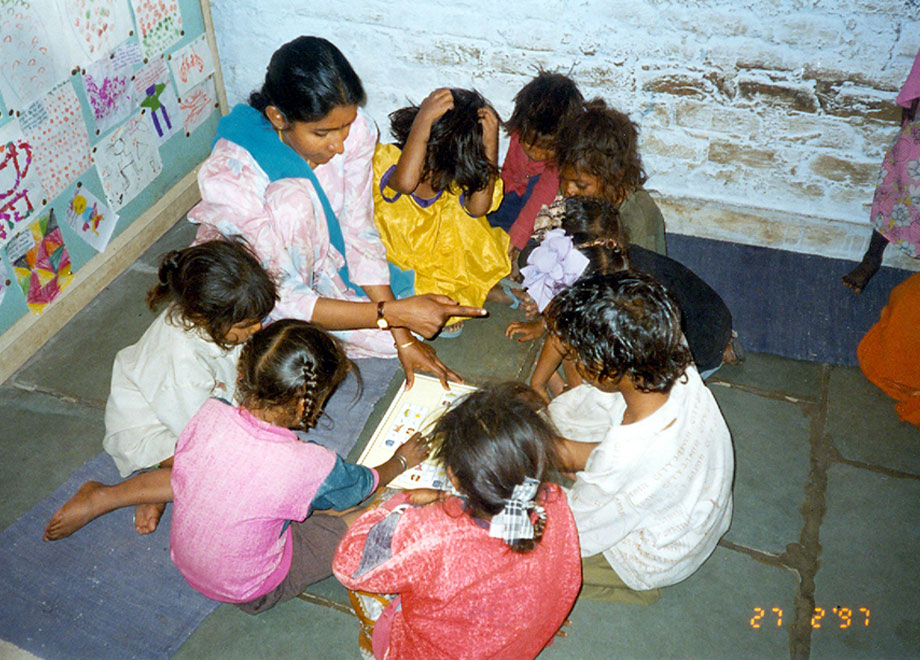
The Primary and Elementary Education area constitutes grades 3 to 8 ( age group 8- 14 years) representing the years when children need a lot of exposure and exploration through which they can develop higher abstract thinking, understanding self and the agency of self and the collective and inquiry-based aptitude. In our approach, we believe that here, along with mastering content knowledge, application of skills, active reflection and collective learning becomes very important as aims as the development of knowledge, skills, and attributes develop them as learners who have the abilities to autonomously carve out a path for themselves in the later years of their lives. We try to develop a culture of mutual learning and exploration with a focus on fostering the values of social justice, equity, and commitment to the larger good.
Along with the core curricular areas, we have a comprehensive and integrated curriculum where areas of art, music, drama, physical education, scientific aptitude and technology-aided learning are seen as integral parts of the teaching–learning of every subject area and separately as well.
Secondary Education
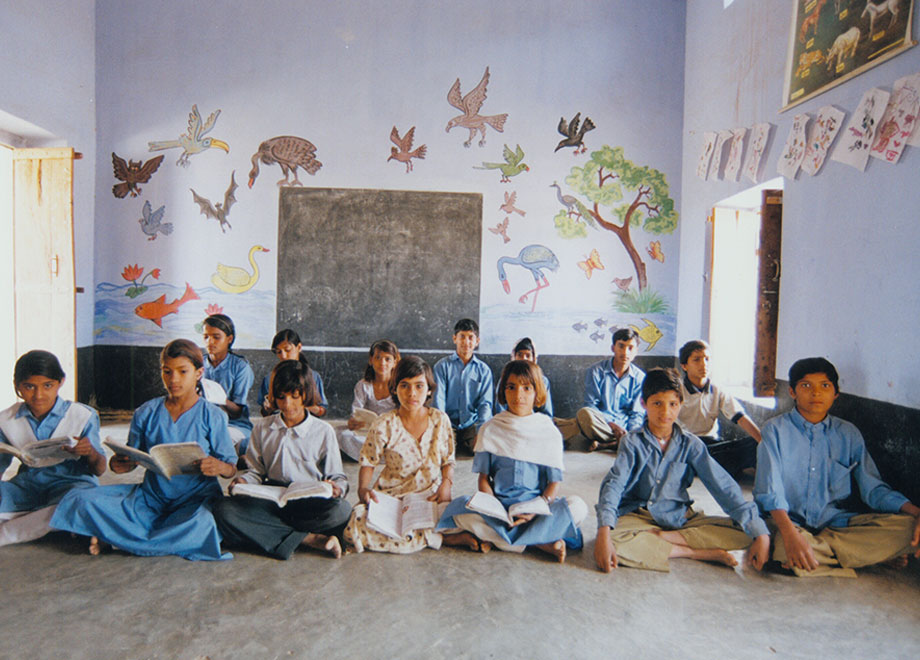
Secondary education represents grades 8 to 12 (14 years to 18 years) and at present Bodh is running two schools till the secondary level. Manas Ganga (Kukas, Jaipur) and Adharshila (Alwar) are two schools where there are classes till 12th and 10th respectively and have children from different backgrounds coming together to learn collectively. This is an emerging area of work for Bodh as we feel that there are immense potentials in these grades which are lost in just encouraging children to cram in the name of preparing children for the competitive world. In this adolescent age, the students become more self-aware, develop higher-order abilities to deal with complexity, start thinking about their role as an active part of the society, develop world – view and concrete and clear aptitudes. Hence our focus, during the secondary years of schooling, is on exploring ways to facilitate these processes and working on their skills. Along with the curricular areas, there is a lot of focus on developing democratic and scientific aptitude in the students and mastery of the content and knowledge.
Teacher Development
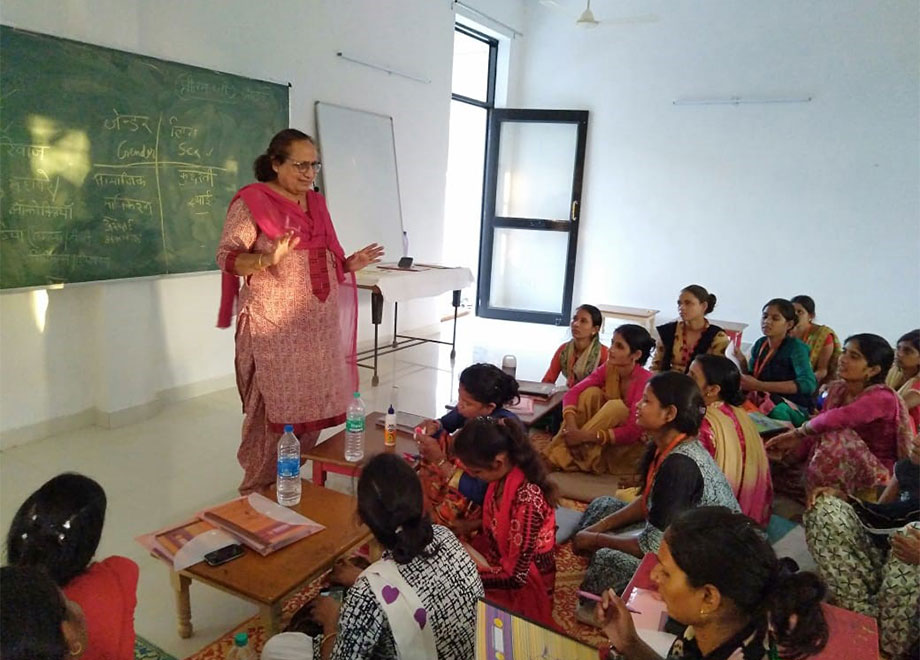
Bodh, from the beginning, in the process of running its network of schools (Bodhshalas) and working with the mainstream school teachers and teachers of other non-governmental organizations, has been working intensively on the area of teacher development through engaging in the long term ( as long as six months residential programmes/ 3 months residential training programme/ 1-month residential training programme) and short term orientation/ capacity-building programmes that are of the duration of 15 days or lesser.
Bodh’s approach to teacher development and teacher engagement has been consistent with its stand on how humans learn and how the learning of an individual and group can be facilitated. So, the curriculum and pedagogy of the teacher development programmes are comprehensive, with a focus on the development of knowledge, perspective and skills and also the required world-view that is needed to work closely with the local communities to manage the schools.
Bodh has strong orientation and in-service teachers’ development programmes and has a separate unit that works on building curricular skills/knowledge in the teachers, development of the pedagogic skills and the required value frame and attitude to work as a democratic and sincere teacher.
According to Bodh, teachers are the front-line cadre of the organization whose development is most crucial for ensuring the change on the ground. Bodh believes in the ability of the humans to think for themselves, spot and solve problems, reflect, plan, innovate and grow with time. So, most of the inputs are more in the direction of the genuine capacity building of the teachers, as compared to giving them ready-made solutions to implement.
Community & Girls Education
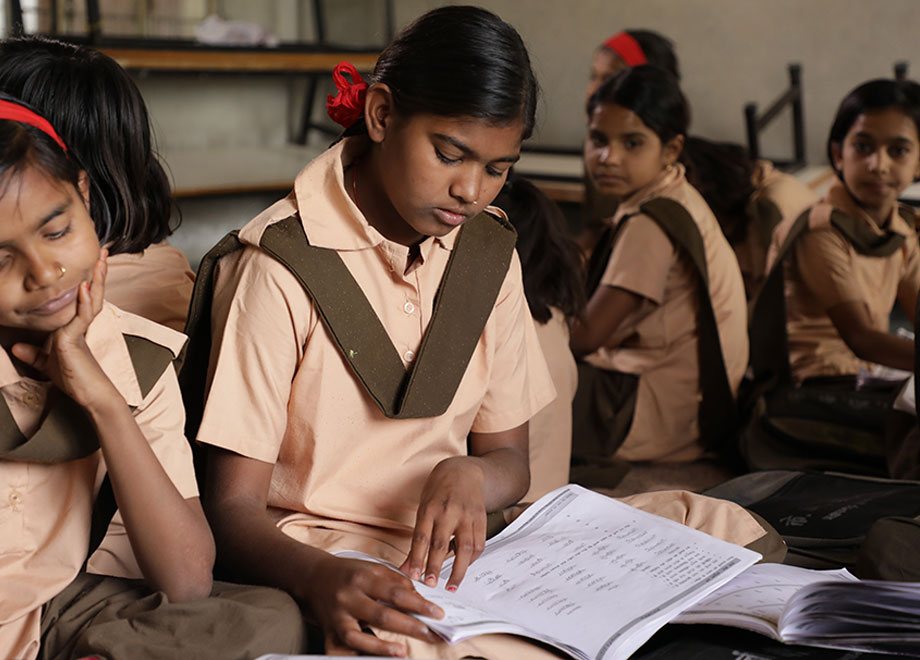
For Bodh, schools as institutions can be thought of without considering the communities in which they are located and are serving too. As, from the beginning, communities have played an important role in setting up the schools, Bodh always believed that constant dialogue with the communities should be ensured to evolve their role in running the schools. Bodh runs different adult literacy programmes for the community members ( mainly where Bodhshalas are there), discussion forums and workshops for establishing dialogue and building perspective, fellowship programmes of 2-3 years of selected women and girls who can learn while working in the schools as pre-early school teachers and camps for adolescent girls who are out of school and need bridging support before joining the mainstream government schools.
Bodh has engaged in undertaking workshops of the members of the School Management Committees, large scale-community level perspective building inputs around film screening/ street plays/ dialogue/meetings and through its programme input where every day a teacher teaching at the Bodhshala spends around 1 hour in the community for establishing a dialogue with the parents and getting their inputs/feedback.
Research & Material Development

Programmatic researches, classroom researches, action researches and theoretical researches for gaining learning from the large pool of the educational literature, constitute the core areas of the work for our research and development department. The department works on theorizing the practice through research and also engages in practicing as per the existing researches and studies. External researchers and organizations have been engaged in the past and are engaged regularly to gain insights into the impact of the programme, bottlenecks, and areas of strengthening.
The research fellows working on the departments that correspond to main education core-areas like Language, Math, Arts, Physical education, ECCE, etc work more on subject-based researches and researches for gaining insights into teaching-learning of these areas. The programmatic fellows mainly support in programme conceptualization and implementation while sharing research insights through the macro lens.
Present a research-based intervention for developing a robust strategy and package at secondary level is being done in partnership with department of education and Michael and Susan Dell Foundation.
Till now with conscientious efforts, Bodh has at least reached 600000 children directly and indirectly and with its community-based model and approach, it has directly engaged 100 communities in a continuous manner through various programmes.
Our overall reach has been through:
- Community Bodhshalas
- Governement Interventions (Direct & Indirect)
- Other Like Minded Organisations (Direct & Indirect)
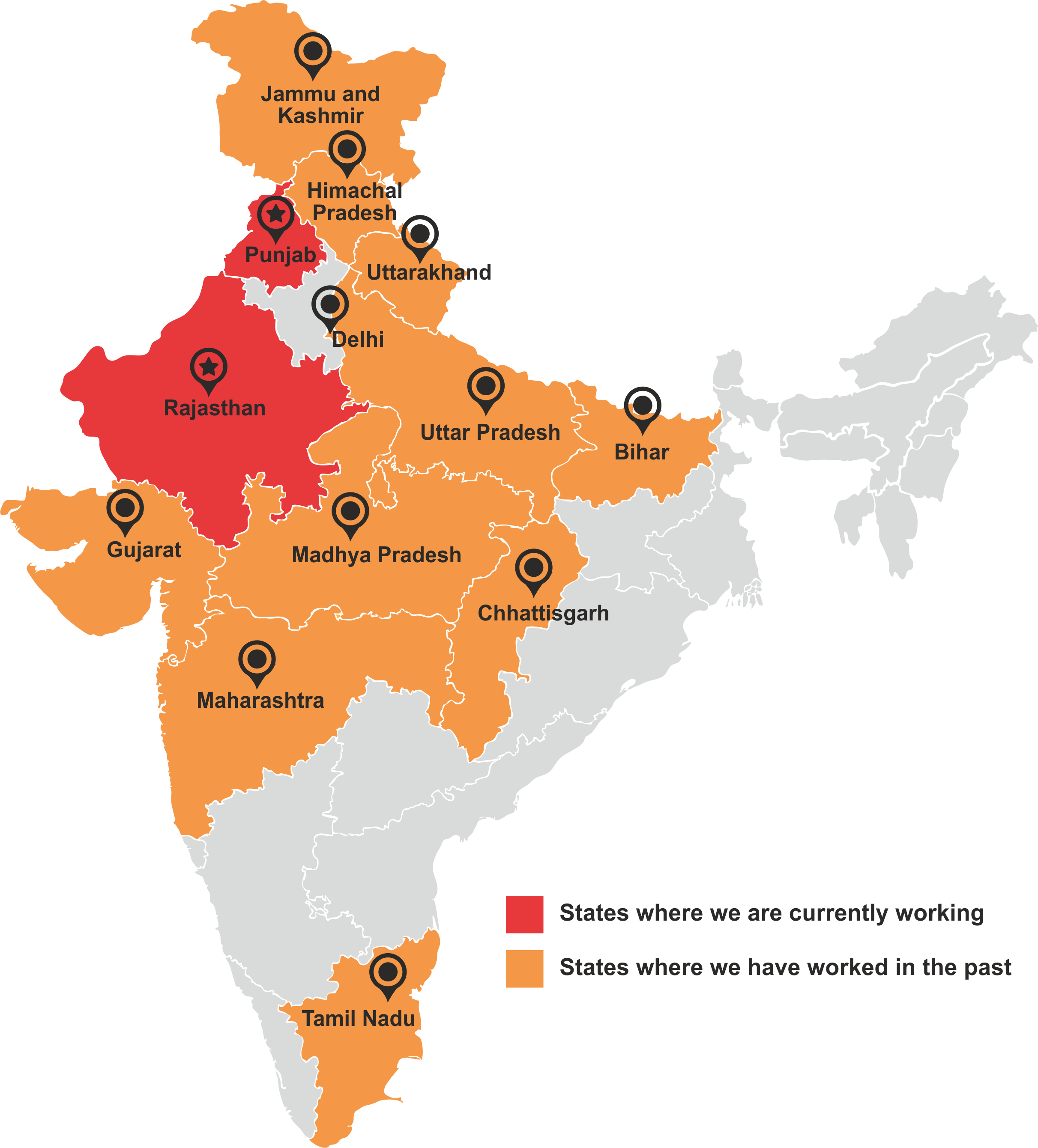
States where we are currently working:
- Punjab
- Rajasthan
States where we have worked in the past:
- Jammu and Kashmir
- Uttarakhand
- Delhi
- Uttar Pradesh
- Bihar
- Madhya Pradesh
- Maharashtra
- Gujarat
- Tamil Nadu
- Chhattisgarh
- Himachal Pradesh

